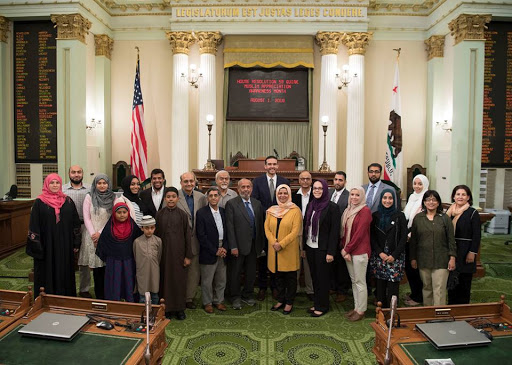Before British Indian filmmaker Reshel Shah got married, she didn’t give much thought toward the hijras – a term for transgender women in India – beyond the stereotypes: as untouchables and sex workers.
When they blessed Shah at her wedding, in traditional fashion, she realized no one could tell her any of their names, or where they came from. These women were as mysterious as the myths that surrounded them, from age-old stories in the “Ramayana” of a group of transgender people who, through their devotion to Lord Rama, are given the power of blessings on others, and who grant or sell those blessings at celebrations, as tokens, and on the streets, as beggars.
“Black Sheep,” co-produced with Accord Equips, is what emerged from Shah’s newfound obsession, a documentary showing the lives of a community of transgender women living in the Indian slums, cast aside by society and denied work outside the sex trade, but who are filled with love and the confidence to be themselves.

Behind the scenes of “Black Sheep” (Courtesy photo)
“These women haven’t had a voice through film,” said Shah, who in addition to directing and producing also placed herself squarely in the film, befriending the women as she learns more about their families, cultures and social standing. “I wanted people to relate. I wanted to show that if an everyday person like myself could go in, then you can go have a conversation with these women, too.”
The film’s most prominent story is that of Mariya, who dreams of becoming a lawyer but who suffers the pain of separation from her family after being threatened for her life by an ashamed uncle, and of the diverse group of women with whom she finds support.
Reactions to the documentary have been overwhelming, especially from Indians. “People came to me and said this film has fixed their view on transgender women,” Shah said. “Especially Indian college students ages 18 to 25, who were the people affected the most. They were really inspired, and most importantly, the questions that came up were, ‘How can we change things?’”

(Courtesy photo)
What they – and others, including those who awarded the pic and Shah with honors at festivals around the world, including the Human Rights Filmmaker of the Year and the Humanitarian Film of the Year in Jakarta – saw through the film were stories about human beings forced to live under a label the misconceptions that come with it. “India lives in a hyper-reality,” Shah said. “LGBT [awareness] is just not there. The idea of social boundaries is what India sticks to – you’re born, you go to school, you educate yourself, you have kids. You are the sheep.”
“Hijra” is a given name. As society’s “black sheep,” transgender women have gained a reputation in India for being carriers of HIV and AIDS, a result of their resorting to sex work for lack of options.
“The government gives transgender women full equal rights, yet what you have to understand is, there are 1.2 billion people in India. The people rule, not so much the government,” Shah said. “The people don’t want to give [hijras] jobs. I met a transgender woman who loved working with kids. She told me, ‘If someone gave me a job as a teacher’s assistant, I would drop everything in a heartbeat. If I could even serve tea in an office, I would drop everything in a heartbeat. But the fact is, no one’s given me that.’ So no one gave her a chance, she ran away to the slums because she had no money, and the only work you can really get is sex work.”
Sons are valued in India – as in much of Asia – to pass down the family history, seen as “knights in shining armor,” Shah said. “Traditionally, they take the family forward.”

Director Reshel Shah (Courtesy photo)
What begins as a month spent with a group of people Shah initially perceives as men dressed like women transforms into sisterhood as she learns each of their back stories and interacts with their families. “Black Sheep” ends with Shah realizing that they are women who do not take life for granted and who “laugh at fear in its face.”
Shah, who is currently working on another human documentary, “La Passant,” said each of her projects will strive to give people “we see but whose stories we don’t know” a platform.
“If this film acts as a brick in a bridge [between transgender women and Indian society],” Shah said, “I’ve done well with giving them a voice.”





